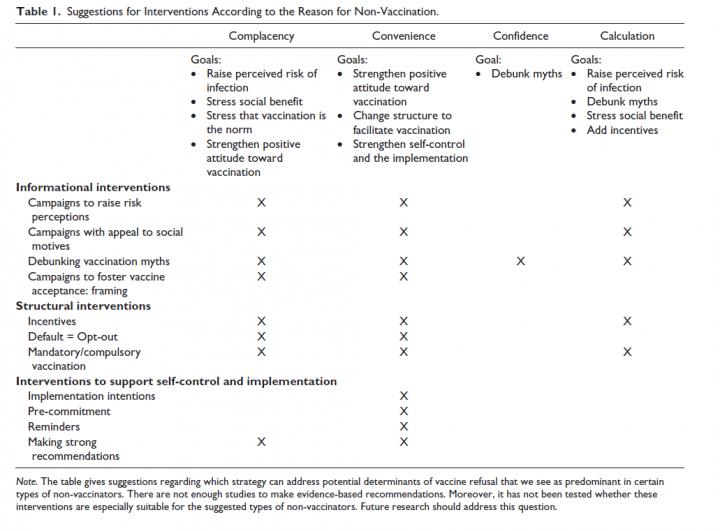While scientists are continuously improving vaccinations to stop the spread of disease, some people continue to opt out and the denial of vaccines comes down on well-known cultural lines: Oregon, Washington and California lead the US and they share both a political and an anti-science mentality. Coming into election season, politicians in those states have been scrambling to show anti-vaccine sentiments are bipartisan and the GOP candidates have done their part to help, giving baffling responses to obvious questions about medicine. While voters in the Democratic party are the overwhelming majority of vaccine deniers, elites have made sure to say just the opposite, insuring that Democrats don't look like the anti-science party, at least when it comes to vaccines. On food and energy science they have embraced distrust of research.
A new review of the literature may help the cause of assuring voters it is not a tenet of any political party. The scholars identified four types of people who decide not to vaccinate due to issues of complacency, convenience, confidence, and calculation, and offer strategies to address these issues. This study is published today in the new issue of Policy Insights from the Behavioral and Brain Sciences.
Analyzing factors that influence decisions to vaccinate and issues that impede vaccinations, researchers Betsch et al. put decision-makers into four broad categories:
Complacent: Individuals who do not care about immunization
- Researchers recommend changes in relaying information, such as campaigns that increase awareness about the likelihood of infection, strengthen positive attitudes toward vaccinations, stress the social benefit of vaccines, position vaccination as the norm, and debunk vaccination myths, such as the myth about the link between vaccination and autism. Strong recommendations to vaccinate, such as those coming from doctors, may also be an effective way to motivate this type. Additional strategies include changes to vaccination policy, such as changing from opt-in systems to opt-out systems or making vaccination mandatory. Adding incentives, such as fines for non-vaccination and cash rewards for vaccination uptake, may also be influential for this type.
Convenience: Individuals who lack the willpower to vaccinate or face the inconvenience of cost and travel
- Researchers recommend changes to the decision structure that facilitate the act of vaccination. Further, doctor recommendations to vaccinate as well as other interventions that support self-control and follow through can be effective with this type, such as asking individuals to pre-commit to vaccination and issuing phone and SMS appointment reminders.
Confidence: Individuals who possess incorrect knowledge that distorts their perceived risk of vaccination and weakens their trust in vaccinations
- Researchers recommend exposure to information that debunks vaccination myths and that comes from trustworthy sources, like doctors.
Calculation: Individuals who weigh potential pros and cons of vaccination, and may not vaccinate when information is contradictory
- Researchers recommend debunking myths, increasing awareness about the likelihood of infection, and stressing the social benefits of vaccines, which will provide calculating individuals with correct information to aid their decision making. For this type, contradictory information can result in inaction, so providing additional information in support of vaccination can be effective. Incentives may also be influential for calculating individuals.

Suggestions regarding which strategy can address potential determinants of vaccine refusal that we see as predominant in certain types of non-vaccinators, though if there were a guaranteed formula there wouldn't be anti-vaxxers. Credit: Betsch et al
The researchers assume confident individuals to be the hardest to persuade, and that attempts to do so may have negative effects, such as increasing their resistance to vaccination.
"Efforts should be concentrated on motivating the complacent, removing barriers for those for whom vaccination is inconvenient, and adding incentives and additional utility for the calculating," the researchers wrote. "These strategies might be more promising, economic and effective than convincing those who lack confidence in vaccination."
Link: